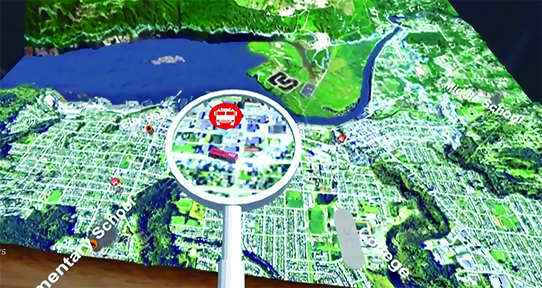Discovery, research and innovation

The Department of Computer Science at the University of Victoria is home to dynamic and active leaders in a broad range of research areas. We are proud of the accomplishments of our faculty and students who have established the Department as a world-class presence in the field of IT research and as an important contributor to Canada's vibrant information economy.
Our progressive faculty and researchers attract funding in excess of $7 million per year and mentor students on cutting-edge developments and advancements. We are supported with research grants provided be a number of sources, including the National Sciences and Engineering Research Council (NSERC) and others from within the province of British Columbia.
Research groups
Computational Biology
Computer Music (MISTIC)
George Tzanetakis; Peter Driessen; W. Andrew Schloss
ECS 602 / 604
- New methods for controlling instruments
- Interactive context-aware music browsing
- Musical robots
- Music information retrieval
Database & Data Mining (DEIA)
Daniel German; Alex Thomo; Venkatesh Srinivasan; George Tzanetakis; Sean Chester
ECS 442
- Data mining
- Bioinformatics
- Automata and formal languages
- Search and ranking
- Algorithms for large social and web graphs
- Mining software repositories
- Big data
Geometry Processing
Graphics, Artificial Intelligence, Design, and Games (GAIDG) Lab
Graphics, Artificial Intelligence, Design, and Games (GAIDG) Lab
ECS 648
- Graphics
- Agent-based Modelling
- Crowd Simulation
- Multi-Agent Reinforcement Learning
- Deep Learning
- Digital Games
- Human Computer Interaction
- Human-Centred Design
- Artificial Intelligence
- Augmented Intelligence
Human-Computer Interaction & Interactive Visualization (VIXI)
Miguel Nacenta; Charles Perin; Sowmya Somanath
Victoria Interactive Experiences with Information (VIXI) Lab
ECS 430
Machine Learning
Parallel, Networking & Distributed Applications (PANDA)
Sudhakar Ganti; Jianping Pan; Kui Wu; Ali Shoja
ECS 402 / 404 / 330
- Cloud computing
- Online social networks
- Software defined networks
- Smart grid
- Green computing
- Mobile computing
- Wireless communication networks
- Mobile ad hoc networks
- Protocol design and performance evaluation applied network security
